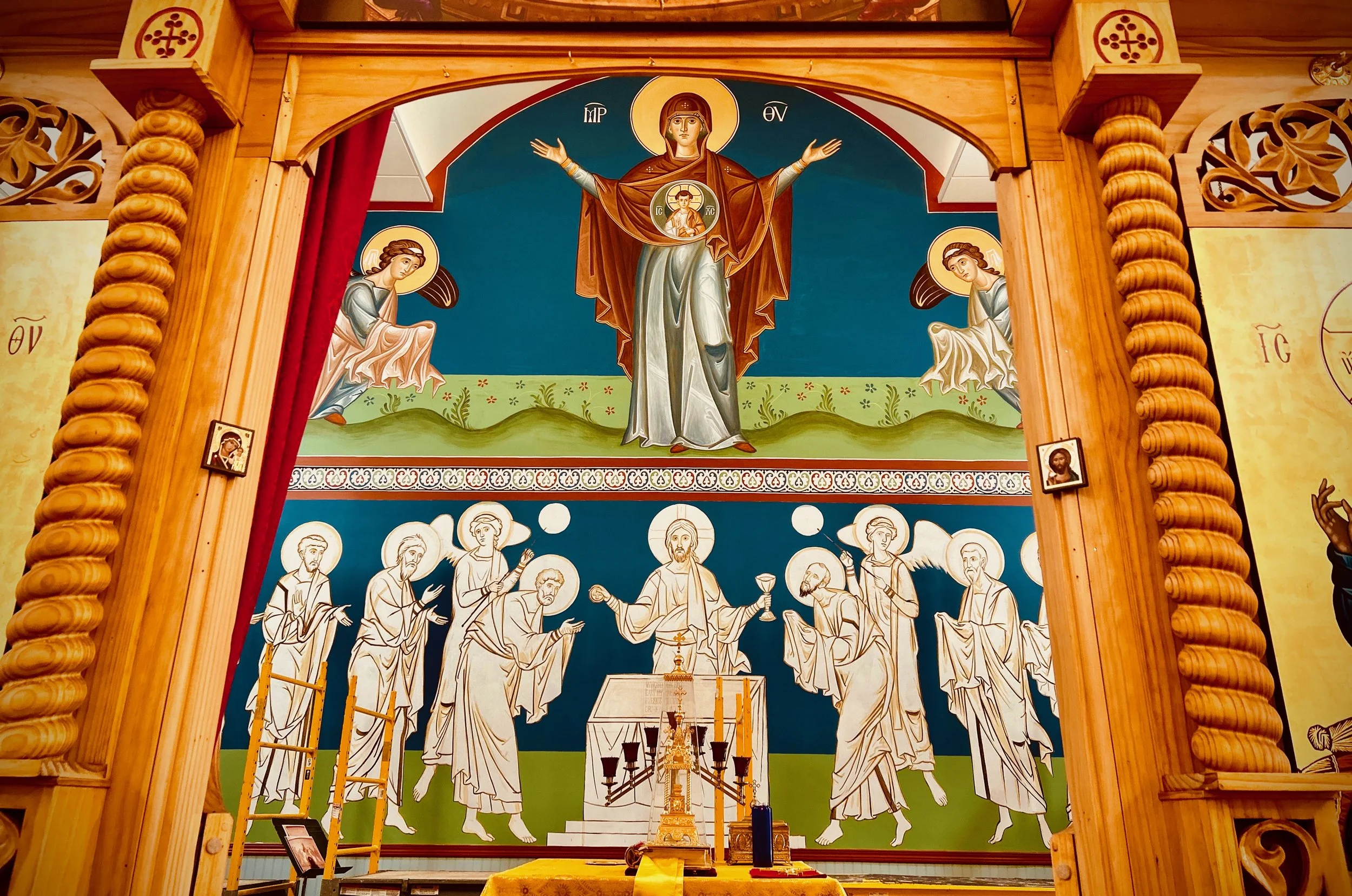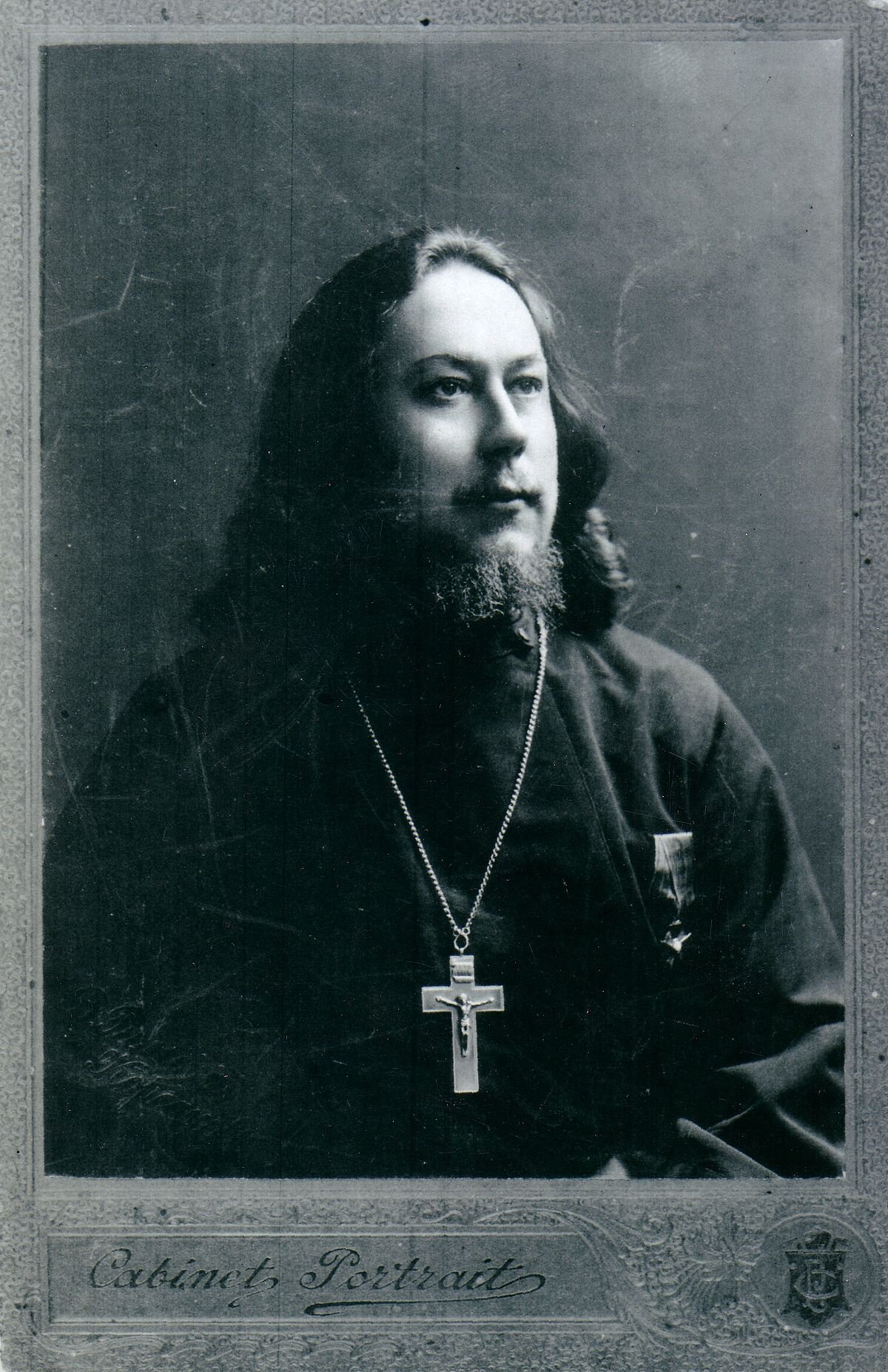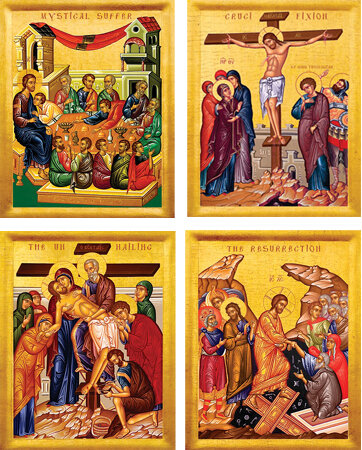Artist and iconographer, Brian Matthew Whirledge, is spending the next few weeks far away from his family and his Goshen, Indiana-based studio. Instead of standing behind his easel with his paintbrushes and paints in their usual places, he’ll be poised on a scaffold high above the floor at Poulsbo’s St. Elizabeth Orthodox Church, using the wall as the canvas and creating traditional icons, the larger-than-life sacred paintings of ancient Christianity.
Father John Strickland, rector at St. Elizabeth’s, said, “We’re blessed to have someone of Brian’s talent come here and do this. His work is the culmination of a multi-year renovation of our temple, which, located behind the Breidablick Cemetery, once served as a place for voting booths and marriage receptions.”
The icon Whirledge is painting now shows the mother of Christ, the Virgin Mary, with the infant Jesus in her arms and angels on either side. When he is done with this, he will paint a second icon below (immediately behind the altar table) showing Christ distributing communion to his disciples. The largest image in the group will be about 15 feet tall.
The use of icons in Orthodox worship is a sacred tradition with roots that go back to the earliest days of Christianity. Before widespread literacy, icons were used to depict Biblical stories, events, and characters. They also serve to remind Christians that in the person of Jesus God truly became a human being.
Whirledge is an officially recognized iconographer who follows practices stretching back more than a millennium to the Byzantine Empire. In addition to studying under contemporary master iconographers, he has visited ancient churches such as one in modern Bulgaria where the prototype for his Poulsbo icon of the Virgin Mary is to be found. Whirledge holds a Bachelor of Science in Art Education and a Master of Education from Indiana Wesleyan University. A Lilly Endowment Teacher Creativity Fellow, he also conducts workshops on how to paint a traditional Byzantine icon from start to finish.
You can learn more about his work by visiting his website: https://www.brianwhirledge.com/
New eastern wall iconography by Brian Matthew Whirledge, in progress.
















